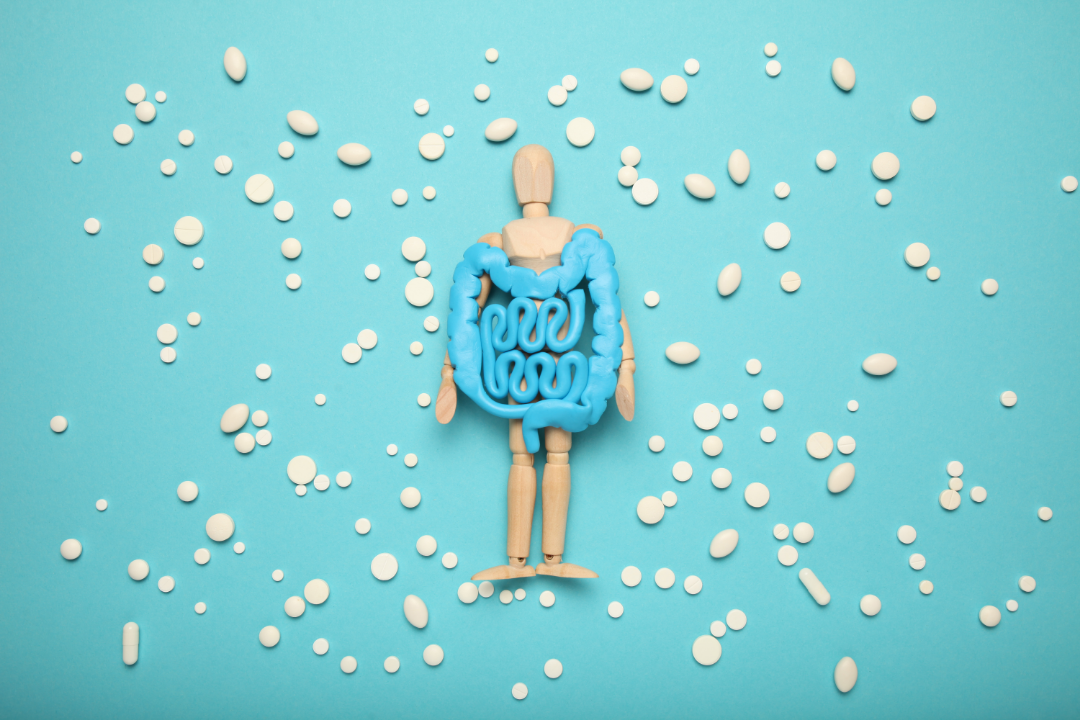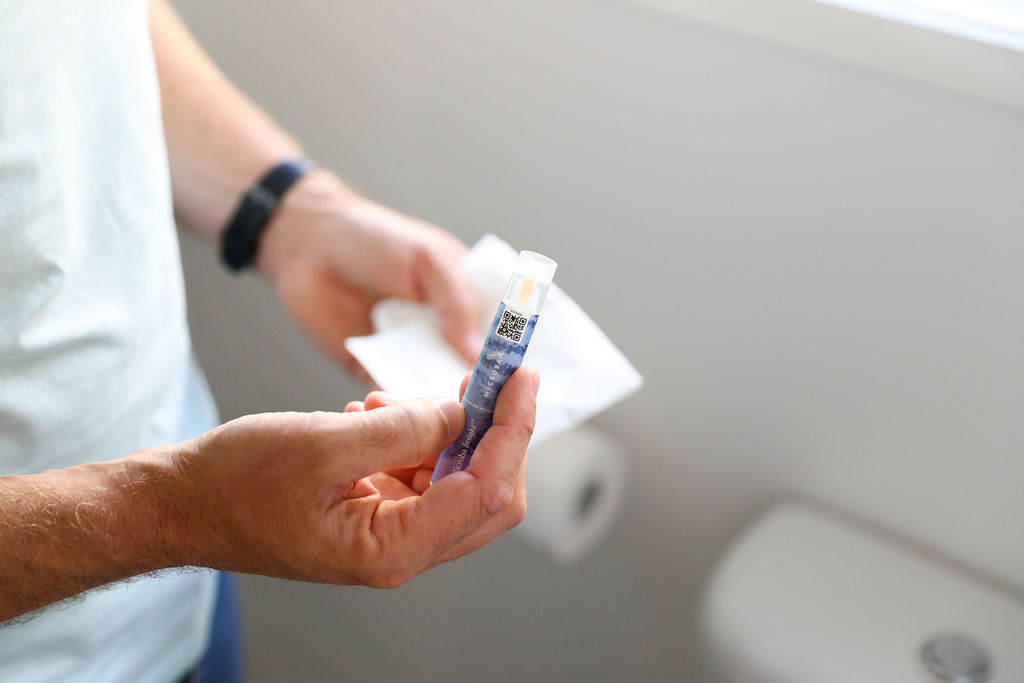
Wondering how your microbial diversity level stacks up? Get a brief overview of what science knows so far about microbial diversity and how you can improve yours for gut health.
As creatures of habit, it’s easy to get stuck in the same old routine, especially when it comes to our food. For example, did you know 66% of the world’s crop production comes from only nine plants1? That doesn’t exactly encourage diverse eating habits, and yet, scientists are learning that adding diversity to your diet can benefit both you and your gut bugs!
Like us, different gut bacteria prefer different types of food, which they can break down to provide us with a wide range of health benefits. Eating a diverse range of foods can help increase your microbial diversity and in turn maximise the potential benefits from your gut bacteria.

Learn more about your unique gut bacteria and what they can do for you through Microba Insight™.
Microbial diversity refers to the number of different species in your gut microbiome and how evenly they are spread out.
The key to a healthy, resilient gut is having a high microbial diversity, meaning you have a high number of different species that are evenly spread across your gut microbiome. These various species of gut bacteria serve several important functions such as aiding in digestion, helping with the absorption and production of essential nutrients, and regulating our immune, metabolic and nervous systems. So, the more diverse your gut bacteria are, the more potential they have to support these functions.
Having a rich and diverse gut microbiome has become an important biomarker for gut health because numerous studies, including Microba’s own, have observed lower diversity as being associated with various diseases such as inflammatory bowel disease2,3, type 1 diabetes4, obesity5 and other health concerns.
The good news is, there are several simple ways to enhance microbial diversity and improve your gut health!
Maintain healthy relationships
We know maintaining a social life is good for mental health, but did you know it’s good for your gut health, too? Microba’s research shows that that 66.6% of people in a relationship have a higher microbial diversity than the average single individual. Plus, 63% of couples with children have a higher diversity than couples without children. Regardless of whether you’re single or in a relationship, the important takeaway is to be social and interact with various people and their unique microbiomes.
Eat more plants
We’ve all been told to eat more veggies, but how does that improve gut health? Foods like fruits, vegetables, nuts, seeds, whole grains and legumes contain high levels of dietary fibre, which fuels the beneficial bacteria in your gut. By increasing the diversity of plant-based food in your diet, you can nourish different types of microbes, leading to a more diverse microbial community6. Try throwing some new vegetables into your shopping cart or opting for a plant-based option you wouldn’t normally order at your favourite restaurant. Your gut (and taste buds) will thank you!
Get a pet
Our research shows that 70% of people who live on a farm have a higher microbial diversity than those who live in a house or apartment. If you’re not quite ready to give up your city-dweller status, don’t stress. Studies show that having furry household pets can increase microbial diversity, especially when exposed at an early age7,8. So, just in case you needed another reason to love your furry friends now you know, they’re gut-friendly, too.
Quit smoking
Microba’s research, along with others, shows that smoking has a strong effect on gut health9. Smokers had significantly reduced microbial diversity compared to non-smokers, including a decrease in several species that are beneficial for our health. Most interestingly, those who quit smoking were able to restore their microbial diversity and improve the health of their gut within just a few weeks.
Get moving
We all know by now that exercise is good for us, but it turns out it’s specifically good for our gut health as well. Recent research, including Microba’s own, shows that moderate to high levels of exercise can improve microbial diversity and enhance the number of beneficial microbial species10. Plus, not only does exercise influence your gut health, but in turn a diverse gut microbiome might even be able to improve your exercise performance11!
It turns out that everyone’s gut microbiome is different – so how do you know what your unique gut microbiome needs?
While it’s difficult to say exactly what an ideal gut microbiome looks like, we do know it includes a high microbial diversity level. By getting a baseline analysis of your gut microbiome you can gain key insights into the makeup of your gut bacteria as well as their potential to perform key functions important to your health. Through regular analysis, you can then track how your gut microbiome shifts over time as you make changes to your diet and lifestyle.

Improve the diversity of your beneficial gut bacteria, using prebiotic food suggestions from Microba Insight™.
This microbiome test is not intended to be used to diagnose or treat medical conditions. A full disclaimer is available here
References
United Nations..
Biodiversity. .
Food and agriculture organization of the United Nations, (2019).
Alam, M.T., Amos, G.C.A., Murphy, A.R.J., Murch, S., Wellington, E.M.H, Arasaradnam, R.P. .
Microbial imbalance in inflammatory bowel disease patients at different taxonomic levels. .
Gut Pathology, 12 (1) (2020). . Doi: DOI: 10.1186/s13099-019-0341-6.
Manichanh, C., Rigottier-Goi, L., Bonnaud E., Gloux, K., Pelletier, E., Frangeul, L., Nalin, R., Jarrin, C., Chardon, P., Marteau, P., Roca, J., Dore, J. .
Reduced diversity of faecal microbiota in Crohn’s disease revealed by a metagenomic approach. .
Gut, 205-211 (2006). . Doi: DOI: 10.1136/gut.2005.073817.
Han, H., Li, Y., Fang, J., Liu, G., Yin, J., Li, T., Yin, Y. .
Gut Microbiota and Type 1 Diabetes. .
International Journal of Molecular Sciences, (2018). . Doi: DOI: 10.3390/ijms19040995.
Lee, C.J, Sears, C.L., Maruthur, N. .
Gut microbiome and its role in obesity and insulin resistance. .
Ann. N.Y. Acad. Sci., (2019). . Doi: DOI: 10.1111/nyas.14107.
Heiman, M.L., Greenway, F.L. .
A healthy gastrointestinal microbiome is dependent on dietary diversity. .
Molecular Metabolism, 317-320 (2016).. Doi: DOI: 10.1016/j.molmet.2016.02.005.
Azad, M.B., Konya, T., Maughan, H., Guttman, D.S., Field, C.J., Sears, M.R., Becker, A.B., Scott, J.A., Kozyrskyj, A.L., & CHILD Study Investigators. .
Infant gut microbiota and the hygiene hypothesis of allergic disease: impact of household pets and siblings on microbiota composition and diversity. .
Allergy, Asthma, & Clinical Immunology, 9(15) (2013). . Doi: DOI: 10.1186/1710-1492-9-15.
Tun, H.M., et al. .
Exposure to household furry pets influences the gut microbiota of infants at 3–4 months following various birth scenarios. .
Microbiome, 5(40) (2017). . Doi: doi:10.1186/s40168-017-0254-x
Biedermann, L., Zeitz, J., Mwinyi, J., et al. .
Smoking cessation induces profound changes in the composition of the intestinal microbiota in humans. .
PLOS One, 2013. . Doi: DOI: 10.1371/journal.pone.0059260.
Monda, V., Villano, I., Messina, A., Valenzana, A., Esposito, T., Moscatelli, F., Viggiano, A., Cibelli, G., Chieffi, S., Monda, M., Messina, G. .
Exercise modifies the gut microbiota with positive health benefits. .
Oxidative Medicine and Cellular Longevity, (2017). . Doi: DOI: 10.1155/2017/3831972.
Carter, S.J., Hunter, G.R., Blackston, W., Liu, N., Lefkowitz, E.J., Van Der Pol, W.J., Morrow, C.D., Paulsen, J.,A., Rogers, L.Q. .
Gut microbiota diversity associates with cardiorespiratory fitness in post-primary treatment breast cancer survivors. .
Experimental Physiology, (2019). . Doi: DOI: 10.1113/EP087404


